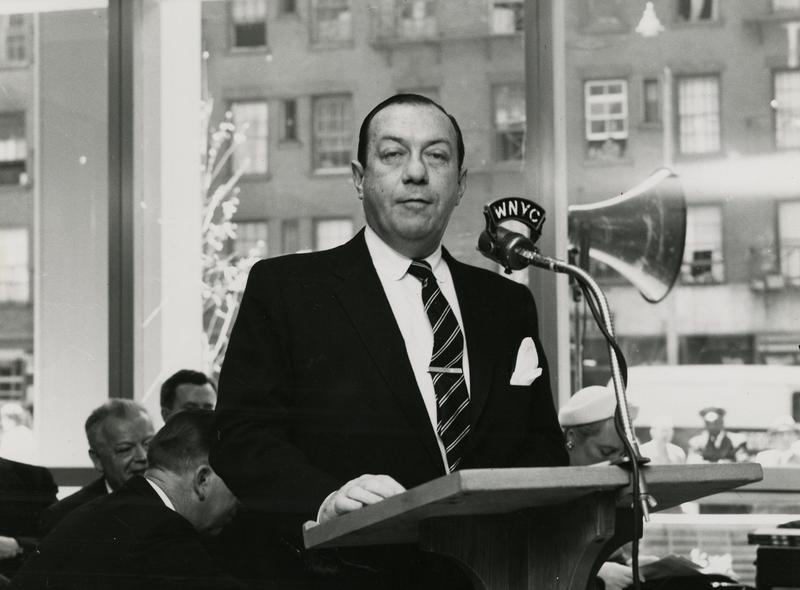 The NYPR Archive Collections
The NYPR Archive Collections
Address on the Problems of the Aged

Mayor Wagner outlines his plan for helping to solve the problems for the elderly at the first meeting of the Citizen's Committee on Aging. His plan has two objectives: to keep the elderly physically, mentally, and financially capable for as long as possible, and to provide care for the elderly when they can no longer care for themselves. He provides detailed plans on maintaining income for the elderly, providing housing, and providing hospitals and other health care facilities for the elderly, including a new hospital for the indigent elderly at the former Nepsonsit Health Care Center.
Mayor Wagner talks about NYC leading the way in approaching the problems facing the elderly. 11 years prior the Mayor's Advisory Committee was created. The committee has asked to be dissolved and continued through the Community Council of Greater New York.
This is the first meeting of the new Citizen's Committee on Aging. He notes the demographic changes occurring where there are more and more persons over 65. He brings up the problems of poverty, ill-health, and loneliness. The public must not be apathetic to these problems.
He goes into how aid for the elderly is funded and where it goes. The majority of city funds go to medical care. Public Home Infirmary Care is a program at 6 NYC hospitals. He talks about their rehabilitative capabilities. He also mentions home care. The Neponsit Health Care Center is due to be remade into a hospital for the indigent elderly. There are grant projects underway for study of health problems for the elderly.
Wagner talks about housing available that is geared toward the elderly created by the department of welfare. There are 20 homes for the elderly overseen by the welfare department. He discusses foster homes for the aged. He talks about their advantages. He notes the financial assistance available through the welfare center.
Wagner feels it is important to plan for the future, attending to projected demographic changes and changes in science and culture. He proposes a new plan of action. There are two long range objectives:
1. to create conditions to keep the elderly physically and mentally sound and economically active as long as possibility.
2. to provide appropriate facilities, services etc. when the are no longer able to care for themselves.
There are several parts to the plan:
1. Wagner is directing the interdepartmental health council and the health research council to develop a masterplan for care of of elderly ill.
2. He is instructing the committee mental health board to provide aid to the elderly in nursing homes and day centers
3. to provide long term low-interest loans for the construction of old age homes.
4. to insure the best quality of care for the elderly in nursing homes.
5. congress should amend the Social Security Act to provide more care for the aged who need medical services.
He goes into the housing aspect of his plan. Housing and living arrangements must be made a reasonable costs for the elderly. 1 in 6 of new apartments should be available for the aged.
1. The day center program must be extend with help from voluntary agencies.
2. The elderly need a guide to manage to variety of organization through which they receive help.
3. Foster homes must be increased by 50%. He is asking the commissioner of welfare to look after it.
4. the elderly must receive help in their own homes.
He then goes into maintaining the income of the aged.
1. He recommends congress increase benefits etc. in the Social Security Act.
2. He is directing the manpower Utilization Council to explore job possibilities for the elderly and to provide training.
He feels that the municipal government is ready to solve these problems for elderly, though they are ambitious.
Audio courtesy of the NYC Municipal Archives WNYC Collection
WNYC archives id: 150731
Municipal archives id: LT9035